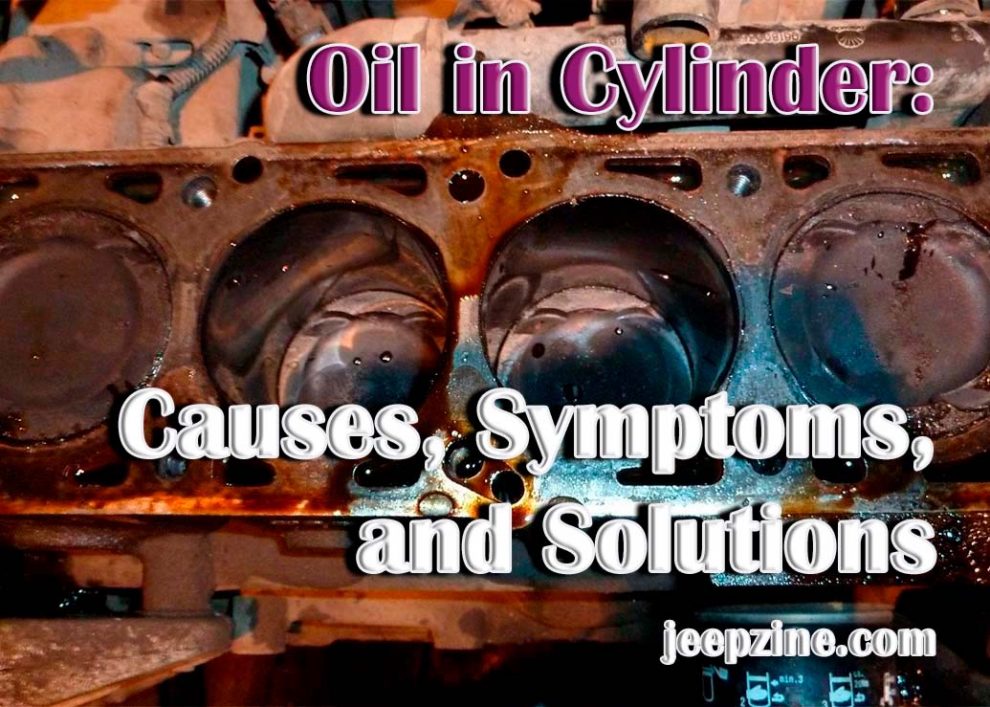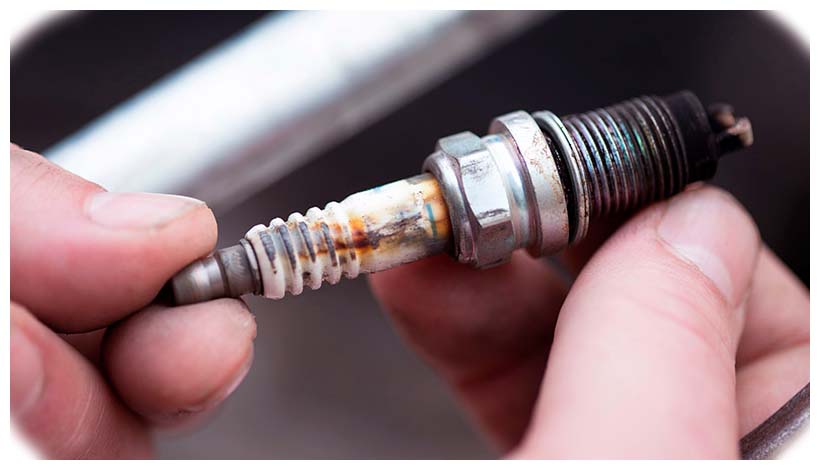The presence of oil in the cylinder of an engine can be a concerning issue that warrants attention and prompt resolution. Oil is meant to remain in the engine’s lubrication system, and when it finds its way into the cylinder, it can lead to various problems and affect the engine’s performance. Understanding the causes, symptoms, and solutions for oil in the cylinder is essential for diagnosing and rectifying the issue effectively. Whether you’re a car enthusiast or a concerned vehicle owner, this guide will equip you with the knowledge needed to address the oil in the cylinder and ensure the smooth operation of your engine.
When oil enters the cylinder, it can lead to a range of issues. It is very undesirable as it disrupts the combustion process, dilutes the air-fuel mixture, and hampers proper combustion and can result in reduced engine performance, increased emissions, fouled spark plugs, and potentially cause damage to engine components.
Causes of Oil in Cylinder
The most common causes of oil entering one or more cylinders include:
-
Worn piston rings – Rings act as barriers between the combustion chamber and crankcase that prevent motor oil from entering the cylinders. Over time these rings can become worn out due to age or high operating temperatures which can lead to oil leaking into one or more cylinders.
-
Faulty seals/gaskets – Seals are responsible for keeping motor oil contained within the crankcase. If these seals become damaged or are not properly installed, oil can seep past them into the cylinders.
-
Oil level too high – If the oil level in an engine is too high, it can enter the cylinder through the PCV (positive crankcase ventilation) valve and disrupt normal combustion.
Symptoms of Oil in Cylinder
The most common signs that there is oil in a cylinder include:
-
Excessive smoke from exhaust pipe – Oil entering a cylinder will mix with fuel and burn, leading to increased emissions and smoke from the exhaust pipe.
-
Loss of power/lower output – Unwanted oil in a cylinder can disrupt normal combustion which leads to reduced power output and lower performance.
-
Low compression readings – Compression tests are used to measure how much pressure is being created in each cylinder during operation; if one or more cylinders have low readings, it could be a sign that there is too much oil present inside them.
-
Fouled spark plugs – The presence of oil inside a cylinder will cause it to become overly saturated with fuel, leading to fouled spark plugs and misfires.
-
High-pitched noises – A high-pitched noise is often heard when oil enters a cylinder and is being burned.
Solutions
There are several potential solutions to consider. The specific approach will depend on the underlying cause of the oil leakage. If worn or damaged piston rings are the culprit, replacing them can restore the proper seal and prevent oil from entering the cylinder. Faulty valve seals or guides may require replacement to ensure a tight seal and prevent oil from seeping into the combustion chamber. Repairing or replacing components of the PCV (Positive Crankcase Ventilation) system can address excessive oil vapor buildup and reduce oil in the cylinder. If the issue lies with the cylinder head gasket, replacing the gasket can resolve the problem.
Additionally, addressing any sources of excessive oil pressure, such as a malfunctioning oil pump or clogged oil passages, can prevent oil from entering the cylinder. Identifying the specific cause of oil in the cylinder is crucial to select the appropriate solution and restore proper engine performance. Consulting with a qualified mechanic or professional is recommended for an accurate diagnosis and proper implementation of the chosen solution. For vehicle owners managing maintenance, understanding how much oil does my car need is fundamental to ensuring the engine is adequately lubricated without contributing to excessive oil consumption or leakage.
Conclusion
Oil in the cylinder is an issue that must be addressed promptly to maintain efficient engine performance. Identifying the causes, symptoms, and solutions for oil in the cylinder is essential to diagnose and rectify the problem correctly. This comprehensive article provided insights into the various factors contributing to oil leakage, identified common symptoms, and offered solutions that can help address the issue effectively. Whether you’re a car enthusiast or a concerned vehicle owner, this information will prove invaluable when it comes to resolving any issues with oil in a cylinder.


 Low compression readings – Compression tests are used to measure how much pressure is being created in each cylinder during operation; if one or more cylinders have low readings, it could be a sign that there is too much oil present inside them.
Low compression readings – Compression tests are used to measure how much pressure is being created in each cylinder during operation; if one or more cylinders have low readings, it could be a sign that there is too much oil present inside them.
Add Comment